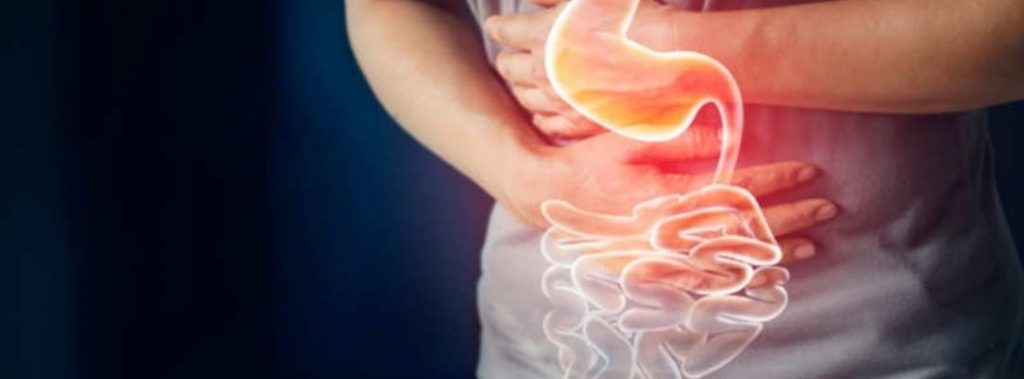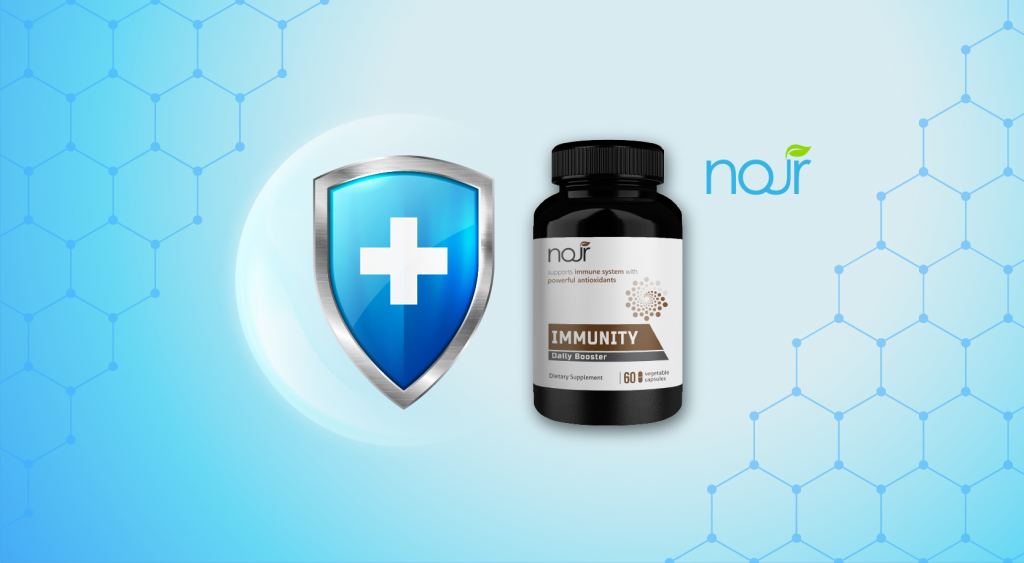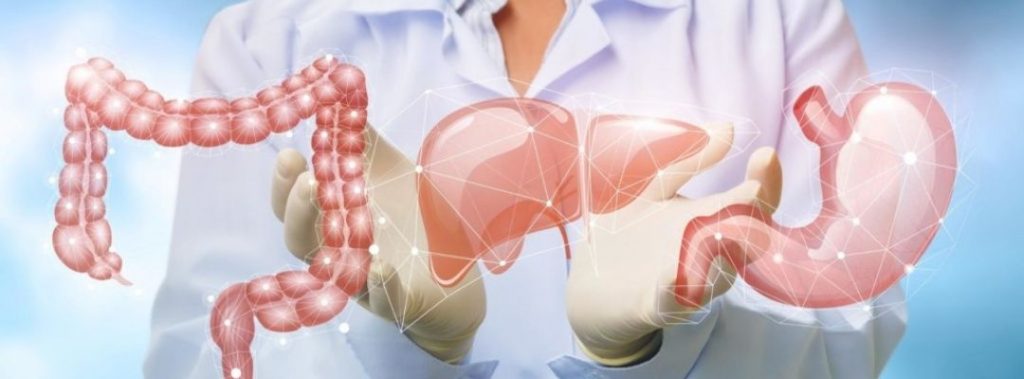If you’re experiencing abdominal pain, nausea or bloating, it could either be a virus that will go away in time, or a sign of a gastrointestinal condition that may require medical attention or a change in lifestyle habits.
You should always consult your doctor to identify the exact cause of your symptoms, but here are a few of the common culprits!
Gastritis
Gastritis is the inflammation of the lining of the stomach. It has many causes, but the most common are infectious agents, especially helicobacter pylori (H. pylori), aspirin and other non-steroidal anti-inflammatory drugs (NSAIDs) like Ponstan, and alcohol.
Some common symptoms of gastritis:

- abdominal pain (intermittent or constant burning, or gripping or gnawing pain)
- nausea and vomiting
- loss of appetite
- bloating, burping and belching
Try to avoid common aggressors such as spicy, fatty and fried foods, chilli powder and coffee as they may increase the severity of symptoms.
Treatment of gastritis depends on its cause. For gastritis associated with of H. pylori, treatment involves a combination of antibiotics and acid suppressants, while gastritis due to aspirin, NSAIDs and alcohol may require an acid suppressant. Where possible, the consumption of alcohol and the medication responsible for the gastritis should be stopped.
Peptic ulcer
Gastritis is often associated with peptic ulcers. Peptic ulcers are sores that develop in the lining of the stomach, lower oesophagus, or first part of the small intestine. They are usually formed as a result of inflammation caused by H. pylori, aspirin and NSAIDs.
The most common symptoms of a peptic ulcer are upper abdominal discomfort, abdominal pain or bloating. You may also notice loss of weight, loss of appetite, nausea, bloody or dark stools, and vomiting.
With proper treatment, most peptic ulcers heal. However, if left untreated, they can worsen over time and lead to more serious health complications such as a perforated ulcer, a bleeding ulcer (which can cause significant blood loss) or scar tissue that may cause strictures, making it difficult for food to pass through your digestive tract.
Gastro-oesophageal reflux disease
Gastro-oesophageal reflux disease (GERD) is a condition where stomach contents move backwards or reflux from the stomach into the oesophagus. The oesophagus is the tube that connects the throat to the stomach.
Reflux is a normal process that may happen in people who have no bothersome symptoms of acid reflux. In contrast, GERD is diagnosed in patients who have episodes of acid reflux that cause troublesome symptoms.
People with GERD may experience symptoms caused by acid irritating and damaging the oesophagus or the back of the throat. These include:
- heartburn
- chest pain
- regurgitation
- nausea or vomiting
- difficulty with or pain when swallowing
- hoarseness of voice and sore throat
- cough
Acid reflux occurs more frequently in patients with GERD, compared to those who do not have symptoms of this disease.
It occurs more frequently if the lower oesophageal sphincter (LES), a muscular valve at the lower end of the oesophagus, opens too often or doesn’t close tightly enough to keep the stomach contents inside. It happens when you overeat, or when there is too much pressure on your stomach, often due to obesity or pregnancy. Smoking, alcohol and caffeine may also loosen the LES.
Fortunately, symptoms can generally be controlled through lifestyle changes. These include quitting smoking, reducing alcohol and caffeine consumption, eating less fat, and losing weight. In persistent cases, if antacids and anti-reflux medication don’t work, surgery can be a last resort.
Irritable bowel syndrome
Irritable bowel syndrome (IBS) is part of a group of gastrointestinal disorders known as functional bowel disorders. It is a common problem affecting 10 – 20% of Singapore’s population. Patients with IBS have abdominal discomfort or pain that is associated with either diarrhoea or constipation, and the discomfort is usually relieved after bowel movements.
Diarrhoea in IBS usually occurs during the day and after meals. Some IBS patients may have constipation instead of diarrhoea and have hard pellet-like stools. Some patients have a combination of both diarrhoea and constipation.
The cause of IBS is unknown. It is often triggered by an episode of gastrointestinal infection or food poisoning. The immune system in the gut is activated during the infection, and produces cells and proteins that increase the sensitivity of the nerves in the gut. The extra sensitive nerves cause the gut to sense normal amounts of gas and movements as bloating and pain.
Stress and anxiety will exacerbate IBS symptoms. However, it is not known if anxiety on its own will cause IBS. Food intolerances are often found in IBS patients but food allergy is not thought to cause IBS.
There is no investigation which will definitively diagnose IBS. Doctors managing IBS patients will often start with a history of the abdominal symptoms and simple blood and stool tests to rule out common disorders. Some doctors may also order more invasive tests, such as colonoscopy and CT scans, if they are thought to be relevant.
Treatment of IBS is aimed at symptom relief and the majority of IBS patients will not require long-term medication. It is usually managed by modifying the person’s diet and lifestyle, avoiding foods and other events that trigger symptoms.
Common foods that may aggravate IBS include dairy products, fried foods, indigestible sugars and beans. Some natural foods such as ginger, peppermint and chamomile may help to reduce some IBS symptoms. If lifestyle modification is not sufficient, the doctor may prescribe medication to reduce loose stools, constipation and bloating, or to reduce sensitivity of the intestines.
Chronic diarrhoea
Chronic diarrhoea is defined as frequent loose stools that last for more than 4 weeks.
The most common cause of chronic diarrhoea in Singapore is IBS. Another common cause is medicines including antibiotics, painkillers (eg. Ponstan) and diabetic medication (eg. Metformin).
Most infections of the intestines cause diarrhoea that lasts for less than 4 weeks. Exceptions include tuberculosis, giardiasis, amoebiasis and tropical sprue, all of which may cause chronic diarrhoea.
In adults, food intolerance may sometimes cause chronic diarrhoea. Lactose intolerance is common in Asians and this can cause diarrhoea and bloating with dairy products. Alcohol and artificial sweeteners may also cause diarrhoea in some patients.
Both non-intestinal and intestinal diseases can cause chronic diarrhoea.
Common non-intestinal diseases that cause diarrhoea include thyroid disease and diabetes. Chronic pancreatitis causing pancreatic enzyme deficiency can cause fat malabsorption and hence, chronic diarrhoea.
Coeliac disease is caused by thinning of the intestinal lining, interfering with absorption, and is more common in Caucasian populations. Ulcerative colitis and Crohn’s disease are associated with intestinal ulcers and can cause chronic diarrhoea and bleeding.
If you have chronic diarrhoea, your doctor may perform blood tests, stool tests and if necessary, gastroscopy and colonoscopy, to diagnose your condition. Treatment of the diarrhoea will depend on the cause identified.
Constipation
If you have a decreased stool frequency of less than 3 times per week, hard or small pellet-like stools, or feel the need to strain at stools when passing motion, you may have constipation.
There are many causes of constipation. The majority of patients with chronic constipation do not have a disease causing the constipation. Treatments for these patients involve changes in lifestyle, diet and fluid intake, and if necessary, medication.
Non-intestinal diseases associated with constipation include thyroid hormone insufficiency and diabetes. Patients with Parkinson’s disease are also more prone to constipation. Some medication including painkillers (eg. morphine) and anti-depressants (eg. amitriptyline) may cause constipation.
If you have constipation, your doctor may evaluate it using blood tests, stool tests, colonoscopy and where appropriate, measurement of anal muscle function.
Treatment for constipation will depend on the cause, and is usually managed by modifying diet and lifestyle, increasing physical activity and fluid intake, and taking natural foods that may help in passing motion (eg. prunes). If lifestyle modification is not sufficient, laxatives may be prescribed.

Inflammatory bowel diseases (Crohn’s disease and ulcerative colitis)
Crohn’s disease and ulcerative colitis are collectively known as the inflammatory bowel diseases (IBD).
Patients with ulcerative colitis develop ulcers only in the large intestine. Patients with Crohn’s disease develop ulcers in the gut, anywhere between the mouth and the anus. The most common parts of the gut affected by Crohn’s disease are the large intestine and the second half of the small intestines.
Symptoms of IBD include abdominal pain, diarrhoea, bloody stools, fever, fatigue, weight loss and malnutrition. In some patients, parts of the body other than the intestines (eg. skin, eyes, joints, or liver) may become inflamed.
It is not known what causes IBD. It is thought that an environmental factor sets off the gut immune system, which then runs out of control and causes inflammation and ulcers in the intestines of people with the correct genetic predisposition.
There is no cure for IBD as it is a chronic disease. However, it can be controlled with treatment, and patients with controlled disease can still lead normal lives. To diagnose this disease, a series of investigations, including blood tests, stool tests, colonoscopy and CT scans or MRI, will be performed.
If you experience any of the above digestive conditions and are concerned about your gut health, consult a gastroenterologist.

